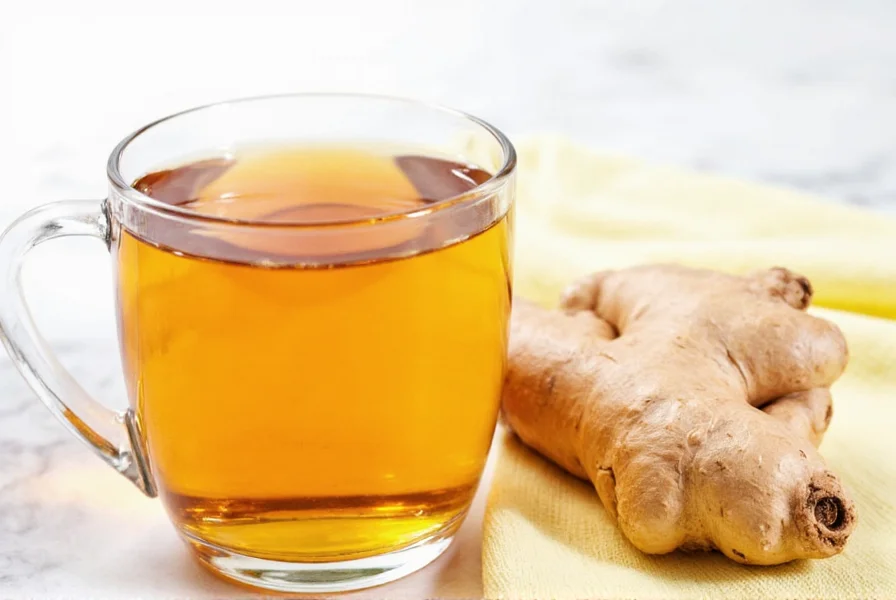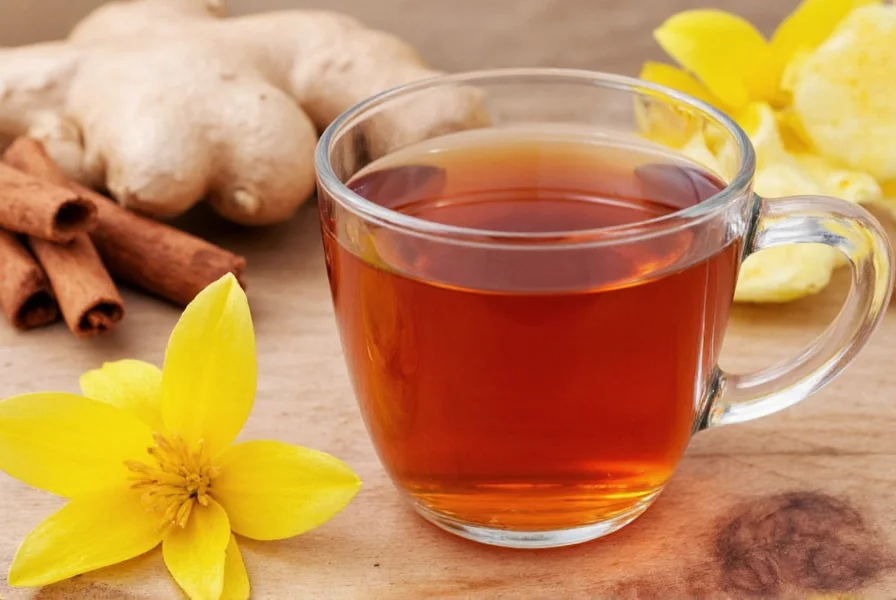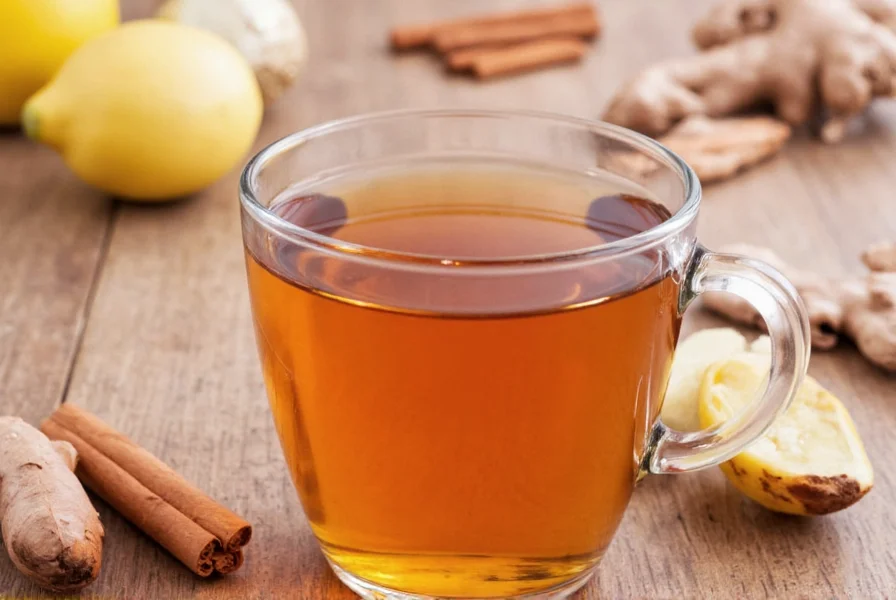Ginger and cinnamon tea has become a popular wellness beverage, blending ancient Ayurvedic and Traditional Chinese Medicine practices with modern health trends. This simple herbal infusion combines two spices that have been used medicinally for thousands of years across various cultures. Recent scientific interest has focused on understanding the synergistic effects of these ingredients when consumed together.
The Science Behind Ginger and Cinnamon Tea Benefits
Research indicates that the combination of ginger (Zingiber officinale) and cinnamon (Cinnamomum verum or Cinnamomum cassia) creates a potent antioxidant profile. A 2020 review published in Nutrients highlighted that both spices contain bioactive compounds—gingerols in ginger and cinnamaldehyde in cinnamon—that work through complementary mechanisms to reduce inflammation.
One of the most studied benefits relates to metabolic health. Clinical trials suggest that regular consumption of this tea may help maintain healthy blood glucose levels. A randomized controlled trial involving 70 participants found that those who consumed ginger-cinnamon tea daily showed significantly better postprandial glucose control compared to the control group after eight weeks.
| Key Compound | Primary Source | Documented Effects |
|---|---|---|
| Gingerols | Ginger root | Anti-inflammatory, digestive support |
| Cinnamaldehyde | Cinnamon bark | Antioxidant, blood sugar regulation |
| Shogaols | Ginger (especially dried) | Potential anti-nausea properties |
Preparing Ginger Cinnamon Tea for Maximum Benefits
The preparation method significantly impacts the bioactive compound extraction. For optimal results when making ginger cinnamon tea for digestion support:
- Use fresh, organic ingredients when possible
- Cut 1-inch piece of ginger into thin slices (increases surface area)
- Add 1 cinnamon stick (about 3 inches) to 2 cups of filtered water
- Bring to a gentle boil, then reduce heat and simmer for 10-15 minutes
- Strain and optionally add lemon or raw honey after cooling slightly
For those seeking ginger cinnamon tea benefits for weight management, avoid adding sweeteners. The natural compounds may support metabolic function without additional calories. Those specifically interested in how to make ginger cinnamon tea for weight loss should note that while the tea may support metabolism, it works best as part of a balanced diet and exercise routine.

Safety Considerations and Potential Side Effects
While ginger and cinnamon tea side effects are generally mild, certain populations should exercise caution:
- Blood thinning concerns: Both ginger and cinnamon have mild anticoagulant properties. Those taking warfarin or other blood thinners should consult their physician.
- Gallstone issues: Ginger may increase bile production, potentially problematic for those with gallstones.
- Pregnancy: Moderate consumption appears safe during pregnancy, but high doses of ginger should be avoided, especially in the first trimester.
- Blood sugar medication: Those managing diabetes with medication should monitor blood sugar closely as the tea may enhance medication effects.
The recommended daily limit for most adults is 2-3 cups. Excessive consumption (more than 4 cups daily) may cause heartburn or mouth irritation from the cinnamon. When considering ginger cinnamon tea for blood sugar regulation, consistency matters more than quantity—daily moderate consumption yields better results than occasional large servings.
Integrating Into Your Wellness Routine
Timing affects how your body utilizes the compounds in this tea. For digestive support, consume 20-30 minutes before meals. Those interested in the best time to drink ginger cinnamon tea for metabolism may benefit from morning consumption to potentially support daytime energy expenditure.
For maximum freshness and potency, prepare this tea fresh daily rather than storing large batches. The volatile compounds degrade over time, reducing potential health benefits of ginger and cinnamon tea. If you prefer convenience, consider keeping pre-measured ingredient packets for quick preparation.

Evidence-Based Expectations
It's important to maintain realistic expectations about what ginger and cinnamon tea can accomplish. While promising research exists, most studies use concentrated extracts rather than tea preparations. The beverage provides milder effects that work cumulatively over time.
Those searching for scientific evidence for ginger and cinnamon tea should understand that while laboratory and animal studies show compelling results, human clinical trials specific to the tea preparation remain limited. The existing research suggests supportive rather than curative effects—meaning it works best as part of a comprehensive wellness approach rather than as a standalone treatment.
Frequently Asked Questions
How often should I drink ginger cinnamon tea for optimal benefits?
For most adults, 1-2 cups daily provides optimal benefits without risk of side effects. Consistency matters more than quantity—daily moderate consumption yields better results than occasional large servings. Those using ginger cinnamon tea for blood sugar management may benefit from splitting consumption between morning and evening.
Can ginger and cinnamon tea help with weight loss?
While not a weight loss solution by itself, ginger and cinnamon tea may support metabolic health when combined with diet and exercise. The compounds may slightly increase thermogenesis and improve insulin sensitivity, potentially aiding weight management efforts. Those specifically interested in how to make ginger cinnamon tea for weight loss should avoid adding sweeteners to keep calorie content minimal.
What's the difference between using fresh ginger versus powdered ginger in this tea?
Fresh ginger contains higher levels of gingerols, while dried/powdered ginger has more shogaols (formed during drying). Fresh ginger generally provides stronger anti-nausea effects, while powdered may offer slightly better antioxidant capacity. For ginger cinnamon tea recipe for digestion, fresh ginger is typically preferred for its more potent digestive enzyme stimulation.
Are there any medication interactions I should be aware of with ginger cinnamon tea?
Yes, ginger may interact with blood thinners like warfarin, and cinnamon contains coumarin which can affect liver metabolism of certain medications. Those taking diabetes medications should monitor blood sugar closely as the tea may enhance medication effects. Always consult your healthcare provider about potential ginger and cinnamon tea side effects if you're on prescription medications.
How long should I steep ginger and cinnamon tea for maximum benefits?
For optimal extraction of beneficial compounds, simmer sliced ginger and cinnamon sticks for 10-15 minutes. Longer steeping (up to 20 minutes) increases potency but may make the tea more bitter. Avoid boiling for extended periods as high heat can degrade some volatile compounds. The ideal ginger cinnamon tea preparation time balances maximum compound extraction with pleasant flavor.











 浙公网安备
33010002000092号
浙公网安备
33010002000092号 浙B2-20120091-4
浙B2-20120091-4